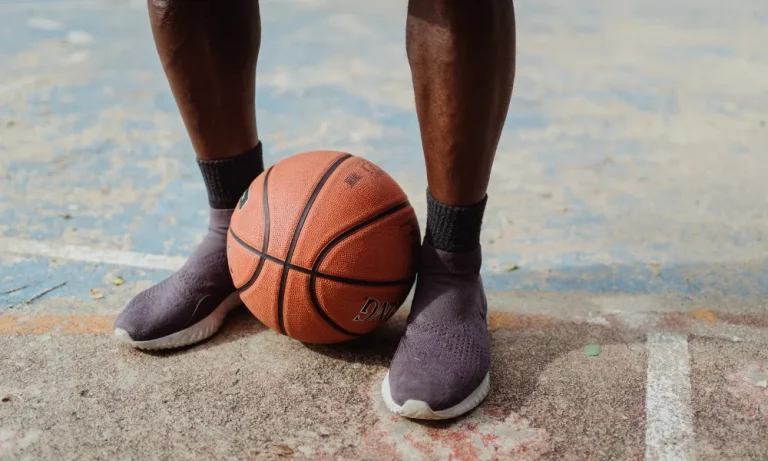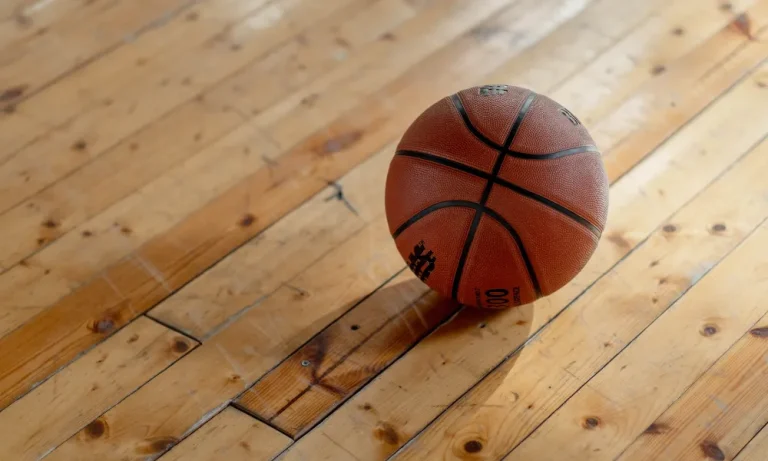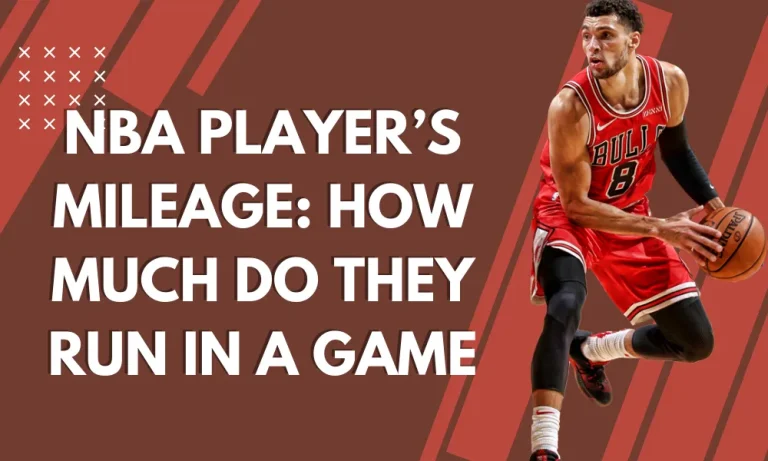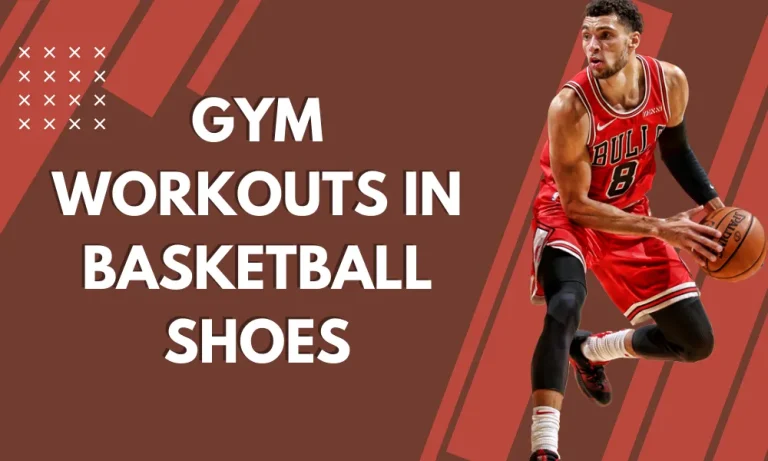Are Basketball Shoes Good For Tennis?
Are you wondering if basketball shoes can work their magic on the tennis court? Lace-up your sneakers and join us as we dive into the debate surrounding the compatibility of basketball shoes with tennis.
In this article, we’ll explore the key differences between these two sports shoes, weigh the pros and cons, and seek expert opinions to help you make an informed decision. Let’s hit the court!
Understanding the Differences
When it comes to sports footwear, understanding the differences between basketball shoes and tennis shoes is crucial. These shoes are designed to cater to the specific demands of each sport, ensuring optimal performance and injury prevention.
Design Features and Technologies
Basketball shoes are engineered to provide superb ankle support and stability. They typically feature high-top designs, padded collars, and secure lacing systems. On the other hand, tennis shoes prioritize lateral movement and quick direction changes.
They have lower profiles, lightweight materials, and flexible soles to enhance agility on the court.
Impact on Performance
The design variances between basketball and tennis shoes directly affect performance. Basketball shoes’ exceptional ankle support helps prevent sprains and offers stability during jumps and landings. They also provide excellent cushioning to absorb impact during intense movements.
However, their bulkiness and high-top design can limit agility, making quick movements on the tennis court more challenging.
Tennis shoes, with their lightweight construction and flexible soles, promote swift movements and quick changes in direction. They offer better traction on various court surfaces, aiding in quick stops and starts.
The lower profile design also enhances the overall court feel and responsiveness. However, the lack of extensive ankle support may increase the risk of ankle injuries.
Injury Prevention
Both basketball and tennis shoes prioritize injury prevention but in different ways. Basketball shoes focus on ankle stability, reducing the likelihood of sprains and twists.
The cushioning systems help absorb shock and protect joints during high-impact movements. In contrast, tennis shoes prioritize flexibility and lateral support to prevent injuries caused by sudden changes in direction and quick stops.
Understanding these differences is essential in choosing the right footwear for your game. Consider your playing style, court surface, and personal preferences to make an informed decision that maximizes your performance while minimizing the risk of injuries.
Pros of Using Basketball Shoes for Tennis
When it comes to tennis footwear, basketball shoes might not be the first choice that comes to mind. However, there are certain advantages to wearing basketball shoes on the tennis court.
Superior Ankle Support and Stability
Basketball shoes are renowned for their exceptional ankle support and stability. The high-top design and padded collars provide a secure fit, minimizing the risk of ankle sprains and twists.
This level of support can be particularly beneficial for players with a history of ankle injuries or those seeking extra stability during aggressive lateral movements.
Cushioning and Impact Protection
Basketball shoes are equipped with advanced cushioning systems designed to absorb impact during jumps and landings. This cushioning can also benefit tennis players, especially during high-intensity matches where explosive movements are common.
The added shock absorption can help reduce the strain on joints and minimize the risk of injuries, such as knee or heel discomfort.
Traction on the Court
Another advantage of basketball shoes is their excellent traction. The outsole patterns and rubber compounds used in basketball shoes offer superior grip on indoor and outdoor basketball courts.
This enhanced traction can translate to the tennis court, providing players with better stability during lateral movements, quick stops, and agile direction changes.
Cons of Using Basketball Shoes for Tennis
While basketball shoes offer certain advantages, it’s important to consider the potential drawbacks of using them for tennis.
Heaviness and Lack of Flexibility
One of the main drawbacks of basketball shoes in tennis is their weight and lack of flexibility. Basketball shoes are typically bulkier and heavier than tennis shoes, which can hinder agility and quick movements on the tennis court.
The added weight and reduced flexibility can make it challenging to change directions swiftly and move with the necessary speed and precision required in tennis.
Impact on Agility and Quick Movements
Tennis is a sport that demands quick reflexes, rapid changes in direction, and agile footwork. Basketball shoes, with their high-top design and sturdy construction, may restrict the natural range of motion needed for these movements.
The lack of flexibility in basketball shoes can impede the player’s ability to make sudden stops, start quickly, or execute precise lateral movements, potentially affecting overall performance on the tennis court.
While basketball shoes may provide superior ankle support and cushioning, these benefits come at the expense of agility and flexibility, which are crucial in tennis.
Therefore, tennis shoes, specifically designed for the sport, are generally recommended to optimize performance and reduce the risk of injuries associated with limited mobility.
Expert Opinions and Recommendations
When it comes to choosing the right footwear for tennis, it’s always helpful to consider the opinions of experts in the field of sports footwear.
Insights from Experts
Experts generally agree that basketball shoes are not specifically designed for the unique demands of tennis. The heaviness and lack of flexibility in basketball shoes can potentially hinder a tennis player’s performance, particularly when it comes to quick movements and agility on the court.
The high-top design, while offering ankle support, may restrict the natural range of motion required for tennis.
Recommendations for Using Basketball Shoes in Tennis
Despite the drawbacks, some experts believe that basketball shoes can be suitable for certain tennis players. Individuals with a history of ankle injuries or those who prioritize ankle support and stability above all else may benefit from using basketball shoes.
Additionally, players who engage in recreational or casual tennis and do not require the same level of agility and quickness as professional or competitive players may find basketball shoes to be a viable option.
However, it’s important to note that these recommendations are not universal. Each player’s needs and preferences may vary, so it’s crucial to consider factors such as playing style, court surface, and personal comfort.
Ultimately, consulting with a sports footwear specialist or trying on different types of shoes can help determine the best fit for individual players.
Alternatives to Basketball Shoes for Tennis
When it comes to playing tennis, wearing the right shoes is crucial for optimal performance and injury prevention. While basketball shoes may not be the ideal choice, there are alternative options specifically designed for tennis that offer numerous advantages.
Tennis Shoes: Designed for Performance and Injury Prevention
Tennis shoes are purpose-built for the unique demands of the sport, providing several advantages over basketball shoes. These shoes are engineered to enhance performance and reduce the risk of injuries on the tennis court.
Tennis shoes are typically lightweight and offer excellent flexibility, allowing for quick movements and rapid changes in direction.
The outsoles are designed to provide optimal traction on various court surfaces, ensuring stability during lateral movements and quick stops. The cushioning system in tennis shoes helps absorb shock and impact, protecting the joints from excessive stress.
Choosing the Right Tennis Shoes
To choose the right tennis shoes for your needs, consider the following factors:
- Court Surface: Different court surfaces require different shoe features. Clay courts may benefit from shoes with herringbone or zigzag patterns on the outsole, while hard courts may require durable outsoles with good traction.
- Foot Type: Determine your foot type, whether it’s neutral, pronated, or supinated. This will help you find shoes with appropriate arch support and stability features.
- Fit and Comfort: Ensure the shoes fit properly, with enough room in the toe box and a snug fit around the heel. Comfort is essential to prevent discomfort or blisters during long matches.
- Durability: Look for well-constructed shoes with durable materials that can withstand the rigors of tennis play.
FAQs: Are Basketball Shoes Good for Tennis?
Can I wear basketball shoes for playing tennis?
While it is possible to use basketball shoes for tennis, they are not specifically designed for the sport and may not provide the best performance or injury prevention.
What are the drawbacks of using basketball shoes for tennis?
Basketball shoes tend to be heavier, less flexible and have a high-top design that may restrict movement and agility on the tennis court.
Who might benefit from using basketball shoes for tennis?
Individuals with a history of ankle injuries or those who prioritize ankle support and stability may find basketball shoes suitable for their needs.
What advantages do tennis shoes offer over basketball shoes for tennis?
Tennis shoes are specifically designed for the sport, offering lightweight construction, flexibility, optimal traction, and cushioning to enhance performance and reduce the risk of injuries.
How do I choose the right tennis shoes for my individual needs?
Consider factors such as court surface, foot type, fit and comfort, and durability when choosing tennis shoes. Trying on different options and consulting with a sports footwear specialist can help you make an informed decision.
Conclusion
While basketball shoes may not be the ideal choice for tennis, they can still be suitable for certain players with specific needs, such as those with a history of ankle injuries. However, for optimal performance and injury prevention, it is recommended to choose tennis shoes that are specifically designed for the sport.





